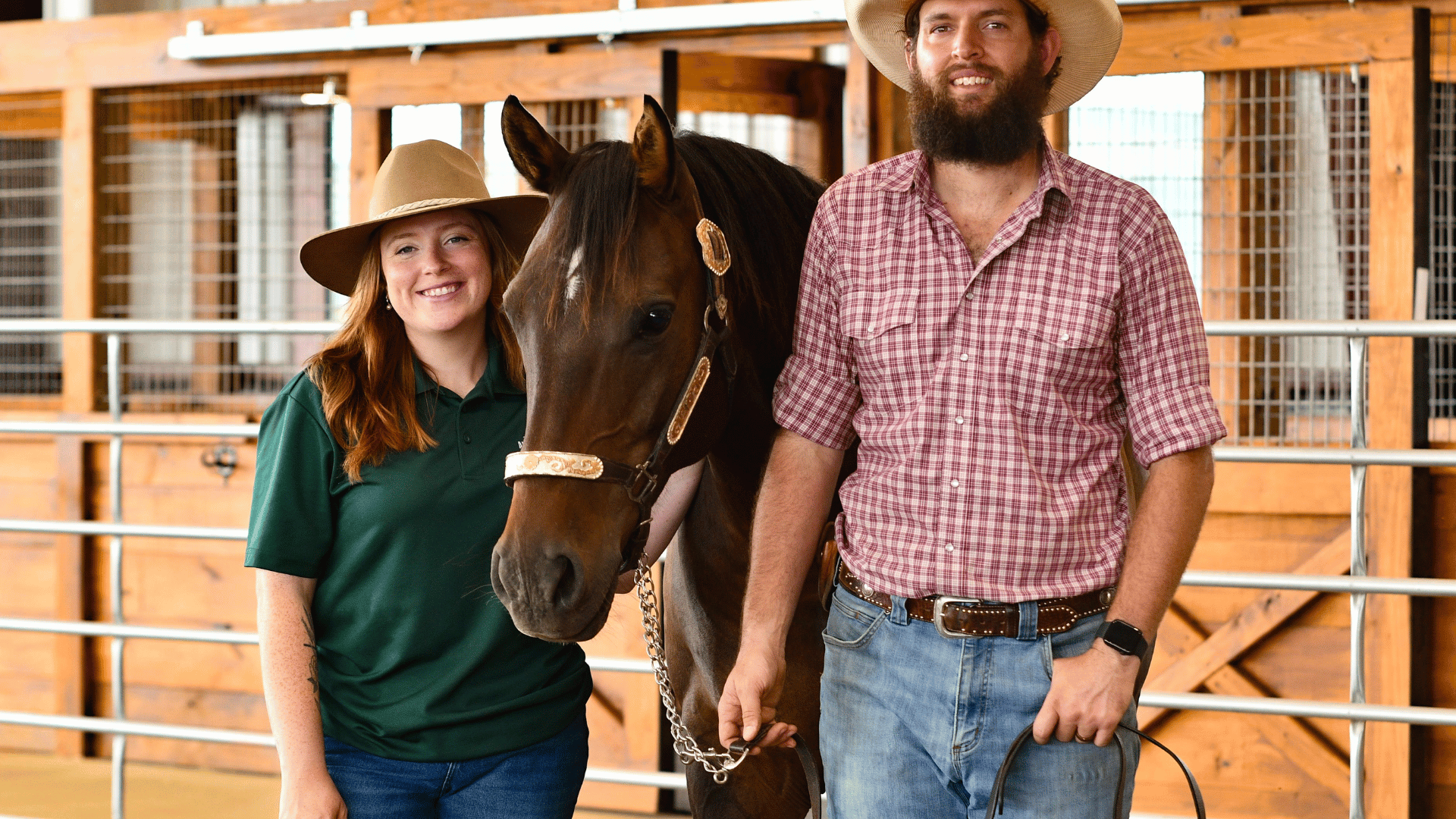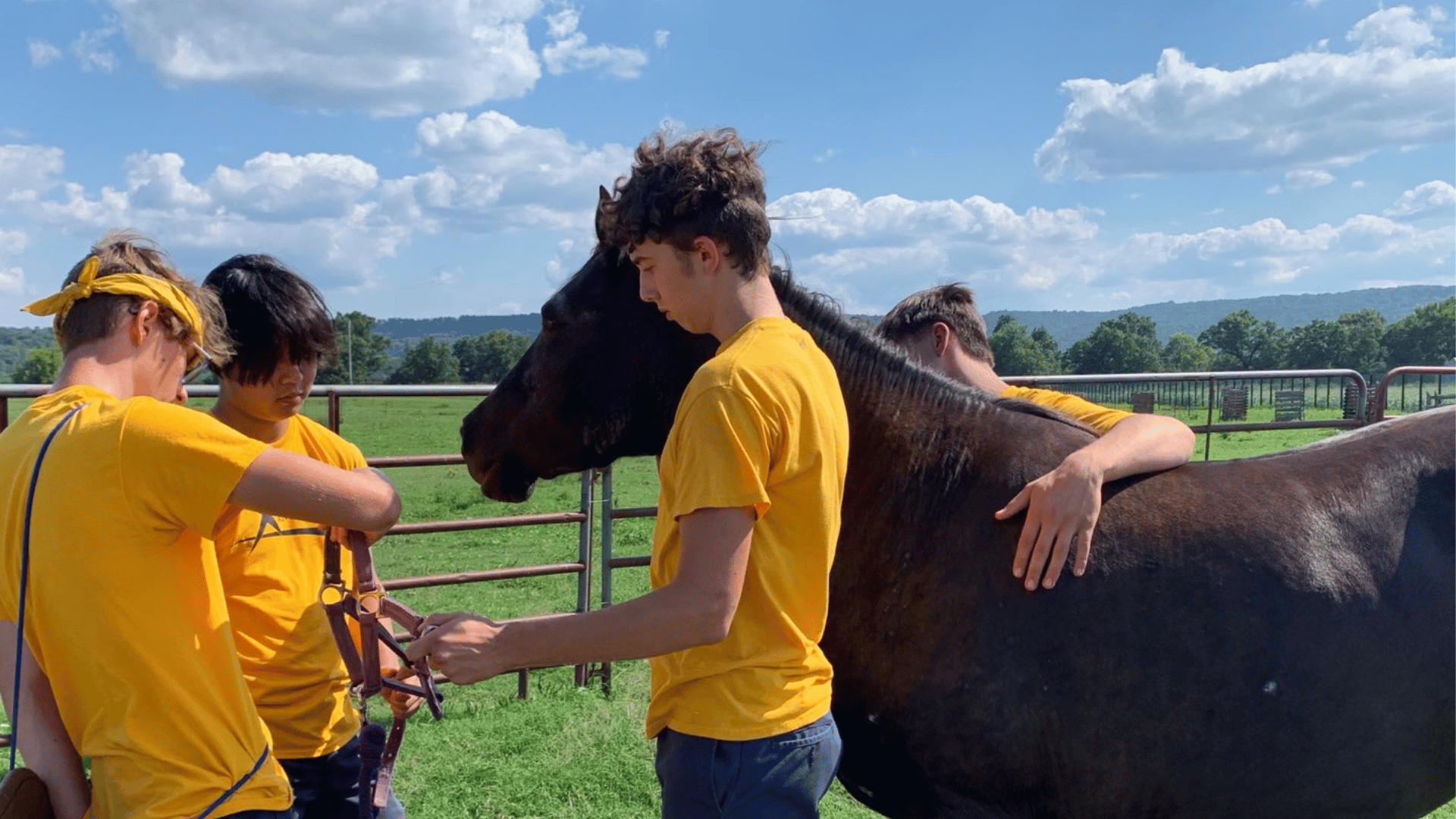
Equine Therapy
Horses Mirror Emotions, Teaching Self-Awareness
Horses are an incredible way to build self-awareness, non-verbal communication skills, and learn to establish trust. For most teens, working with horses is new and interesting. Equine therapy sessions can provide a fun and engaging way to participate in treatment that sparks interest and facilitates progress in most other areas.
At Teen Challenge Adventure Ranch, we utilize a combination of therapist-debriefed equine-assisted psychotherapy and natural horsemanship activities for experiential learning and growth.

Therapeutic Benefits of Working with Horses
Emotional Regulation
Non-Verbal Communication
Improved Self-Confidence
Enhanced Trust Building
Increased Empathy & Responsibility


Horses Help Teens Heal from Past Trauma & PTSD
Horses provide a nonjudgmental, safe presence, making them excellent companions for teens dealing with trauma or PTSD. At Teen Challenge Adventure Ranch, we use equine therapy to help teens rebuild trust and reduce hypervigilance in a supportive environment.
At Teen Challenge Adventure Ranch, working with horses is a regular part of the daily schedule. From structured therapeutic activities to bonding with the animals and learning basic care and routine, every moment promotes personal growth.


